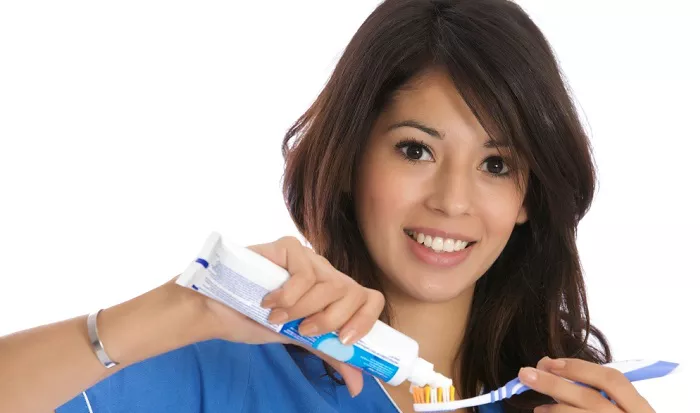Teeth whitening is a popular cosmetic dental procedure that helps individuals achieve a brighter smile. After undergoing this treatment, many patients have questions about their oral hygiene routine, especially regarding when they can brush their teeth. This article provides a detailed guide on when to brush your teeth after teeth whitening, the reasons behind these recommendations, and best practices for maintaining oral health post-treatment.
Understanding Teeth Whitening
What is Teeth Whitening?
Teeth whitening is a cosmetic procedure that lightens the color of the teeth. It can be performed in a dental office or at home using various products. The most common methods include:
In-Office Whitening: This method involves a dental professional applying a high-concentration bleaching agent to the teeth. This process often includes the use of a special light to enhance the whitening effect.
At-Home Whitening Kits: These kits contain lower concentrations of bleaching agents and are provided by dentists or available over the counter. Patients use custom trays or strips to apply the whitening gel.
The Importance of Post-Whitening Care
After teeth whitening, your teeth may be more sensitive, and the enamel may be temporarily more porous. Proper post-whitening care is crucial to maintaining the results and ensuring your oral health.
Sensitivity Issues
Teeth whitening can lead to temporary sensitivity. This sensitivity can make brushing uncomfortable.
Understanding Sensitivity: Some individuals may experience heightened sensitivity to hot, cold, or sweet foods and beverages after whitening. This sensitivity usually subsides within a few days.
Enamel Considerations
The whitening process can affect the enamel.
Porosity of Enamel: After whitening, the enamel may be slightly more porous, making it essential to avoid abrasive products immediately after treatment. This porosity can allow stains to penetrate more easily.
When to Brush Your Teeth After Whitening
After undergoing a teeth whitening procedure, it is essential to wait before brushing your teeth.
Recommended Waiting Period
Most dental professionals recommend waiting at least 30 minutes to one hour after whitening before brushing your teeth.
Reason for Waiting: This waiting period allows the whitening agent to fully penetrate the enamel and ensures that your teeth are not overly sensitive when brushing.
Avoiding Immediate Brushing
Brushing immediately after whitening can cause discomfort and may damage the enamel.
Gentle Approach: If you feel the need to clean your mouth after treatment, consider rinsing with water instead of brushing immediately.
Best Practices for Brushing After Whitening
Once the initial waiting period has passed, you can resume your normal brushing routine. However, it is essential to follow specific guidelines.
Use a Soft-Bristled Toothbrush
Using a soft-bristled toothbrush is crucial after whitening.
Gentle Cleaning: A soft-bristled brush will clean your teeth effectively without causing additional sensitivity or damage to the enamel.
Choose the Right Toothpaste
Selecting the right toothpaste can make a significant difference in your post-whitening care.
Desensitizing Toothpaste: Consider using a toothpaste designed for sensitive teeth. These products contain ingredients that help block pain signals and reduce sensitivity.
Wait Before Using Whitening Toothpaste
After whitening, it is advisable to avoid using whitening toothpaste for a few days.
Reason for Avoidance: Whitening toothpaste can be abrasive and may exacerbate sensitivity. Stick to regular or desensitizing toothpaste for optimal care.
Maintaining Oral Hygiene After Whitening
Maintaining a consistent oral hygiene routine is essential for preserving the results of your teeth whitening.
Regular Brushing
Brush your teeth at least twice a day.
Timing: Continue to brush your teeth in the morning and before bed. If you consume staining foods or beverages, consider brushing afterward.
Flossing Daily
Flossing is a crucial part of your oral hygiene routine.
Removing Debris: Flossing helps remove food particles and plaque between the teeth, preventing staining and maintaining overall oral health.
Rinsing After Eating or Drinking
Rinsing your mouth after consuming foods or beverages can help maintain the results of your whitening.
Importance of Rinsing
Rinsing after meals helps remove any residual food particles that could contribute to staining.
Quick Rinse: A quick rinse with water is often sufficient to help minimize staining risks.
Additional Tips for Post-Whitening Care
Regular visits to your dentist are essential for maintaining oral health.
Professional Cleanings
Schedule professional cleanings every six months.
Preventing Stains: Professional cleanings help remove plaque and tartar buildup, which can contribute to staining.
Discussing Sensitivity
If you experience prolonged sensitivity, discuss it with your dentist.
Possible Solutions: Your dentist can recommend treatments or adjustments to your oral care routine to alleviate sensitivity.
Choosing the Right Mouthwash
Select an alcohol-free mouthwash to avoid irritation.
Benefits: Alcohol-free mouthwashes are gentler on sensitive teeth and gums and can help maintain freshness.
Conclusion
In conclusion, knowing when to brush your teeth after teeth whitening is crucial for maintaining oral health and ensuring the best results from the treatment. It is advisable to wait at least 30 minutes to one hour before brushing. Using a soft-bristled toothbrush and desensitizing toothpaste can help manage any sensitivity you may experience. Maintaining a consistent oral hygiene routine, avoiding staining foods and beverages, and scheduling regular dental checkups are essential for preserving your bright smile. By following these guidelines, you can enjoy the benefits of teeth whitening while ensuring the health and longevity of your smile.

